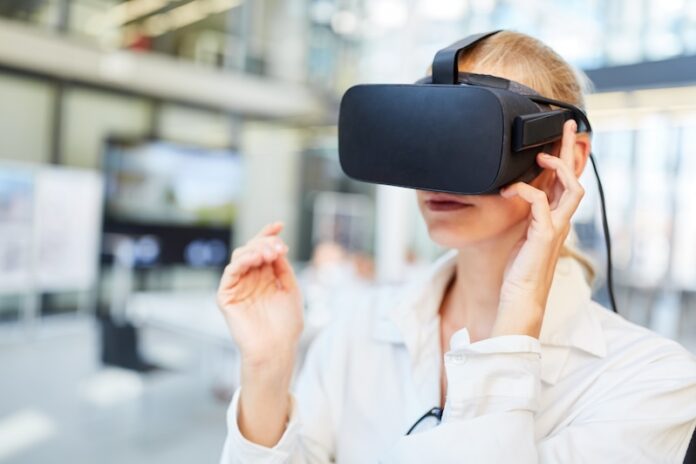A new virtual reality (VR) simulation training program with a mental health focus at The Hospital for Sick Children (SickKids) is empowering staff to effectively de-escalate situations that can lead to harm for patients, families and practitioners. Visiting a hospital can be a stressful experience at the best of times. When difficult situations arise, it is important that health-care providers feel equipped to put theory into practice and effectively navigate escalating tensions and emotions.
When a person is faced with a challenging situation, it can quicky escalate when an intense rise of emotions impacts their ability to cope. These escalating circumstances are often saturated with complexities and nuances that demand a unique training approach that is incredibly hard to replicate but is essential to ensuring health-care providers feel equipped to put theory into practice and effectively navigate the escalating tensions and emotions.
The VR training, developed within the Literacy Pillar of the Mental Health Strategy led by Laila Strazds, Education Project Manager, is unique in that it allows staff, in a simulated scenario, to practice responding to a patient interaction that follows a pattern of escalation (baseline, escalation, crisis, and recovery).
“When there’s a mental health crisis, it’s a very high stakes, complex situation. We need to practice, but historically there hasn’t been a great way to do this,” says Dr. Sasha Litwin, Emergency Department Physician and contributor to the design of the project. “Virtual reality makes for an immersive practice setting that gives people the chance to test things out, see what works, and learn – so when it happens, which it does often, we’re ready.”
Putting theory into practice
Escalations can take on many different forms, from a rise in the volume of their voice, to hitting or breaking things or harming themselves or someone else. A main indicator of an escalating circumstance is when, for a variety of reasons, someone is unable to self-regulate and get themselves out of that state. The uniqueness of each situation presents distinct challenges for health-care providers to respond in a supportive, trauma-informed way.
“The biggest offering of this technology is the interaction, whether you’re a novice or a trained person” says Robert Chatwin, a Child and Youth Counsellor who was part of a pilot group to provide feedback during the development phase of the training tool. “It creates a psychologically safe environment for you to see instantly the ramifications of your choice –often times you only get that instant feedback from real experience.”
The roughly 20-minute simulation immerses care providers in the fictional story of a 13-year-old non-binary youth named Caden who was brought into the Emergency Department by their mother for suicidal risk and self-injury. Different variations of the story are presented based on how the learner chooses to respond to Caden at each of the 13 interaction points. The program follows the four escalation levels to help staff practice critical decision-making, collaborative problem-solving, and emotional awareness and regulation at each level of an escalation. It was designed to incorporate equity, diversity and inclusion features, like prompting the use of Caden’s correct pronouns to avoid misgendering.
“We come into each case with the expectation that we’ll provide the best care possible,” says Dr. Jabeen Fayyaz, Director of the Simulation Program (SimKids) and Emergency Department Physician. “This VR training allows all learners across disciplines to build their confidence in handling an escalating circumstance, ultimately allowing us to focus on providing our patients the care they deserve in the best possible way, customized to their need.”
The VR training will start being used in early 2024, starting with staff who are Crisis Prevention Institute (CPI) certified, and later integrated into a larger de-escalation program offered through the SickKids Learning Institute.


